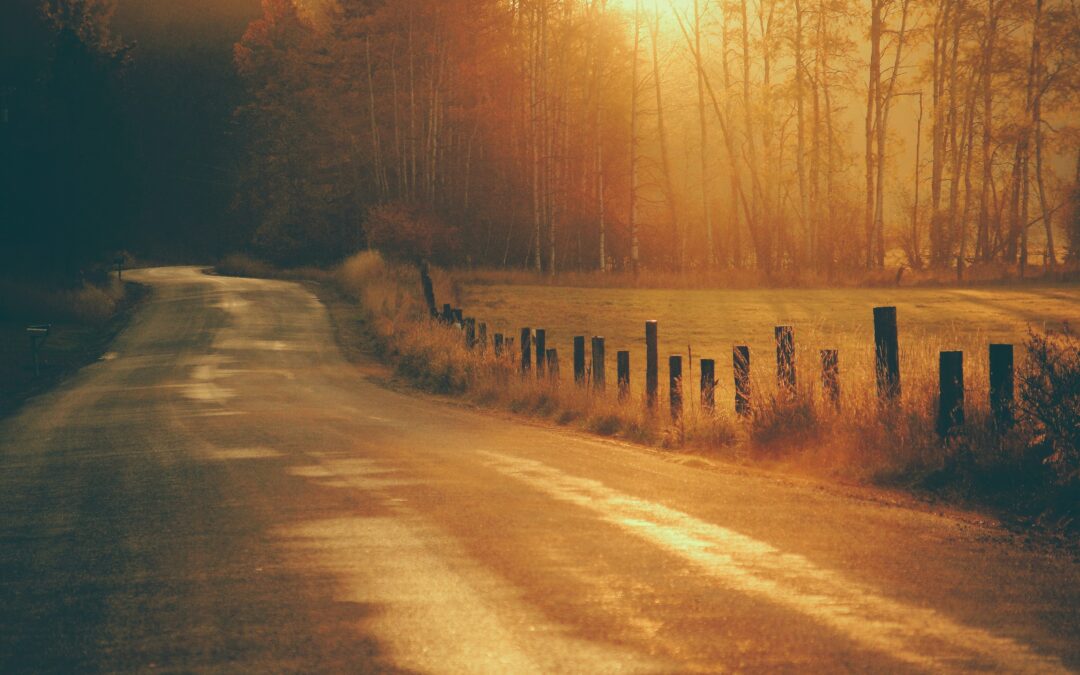Rocking, basking, relaxing on the front porch, she is clearly master of her 2-acre domain; at least, that’s what I extrapolate at 25 bumpy miles-per-hour on the pockmarked road passing along her fence, the path my sub-par GPS has mapped for me on the way to a church another 20 miles on. While apologizing to my truck for abusing it so, I first ponder whether the road is exactly as she likes it—an urbanite repellent; but second, whether she, or any urban-refugees eventually settling in as her neighbors, might actually appreciate something more akin to a street than the face of the moon.
The new country described in Hebrews’ chapter on faith strikes me, with an irony: “But as it is, they desire a better country, that is, a heavenly one. Therefore God is not ashamed to be called their God, for he has prepared for them a city.”
Formerly rural communities now appended by tract houses and gated communities, perforated by fast food and quick casual joints, populated by move-ins and slightly aloof but generally wealthier locals all attest to the irony of urban sprawl: that people carry with them the conditions they flee. Cain settles Enoch; Jeroboam, Shechem. Whether fleeing judgment or authority, moved by fear or frustration, as a secessionist or a revolutionary, in their skin they carry the flaw of the old circumstance into the new.
Where we seek improvement, we need transformation. What we require and receive in grace is not simply escape, but a new settler and a new setting. As in Hebrews, God designs and builds a homeland sought only by those faith converts.
To a week of hope and expectation bounded only by faith, boundless in God’s purpose and power.

